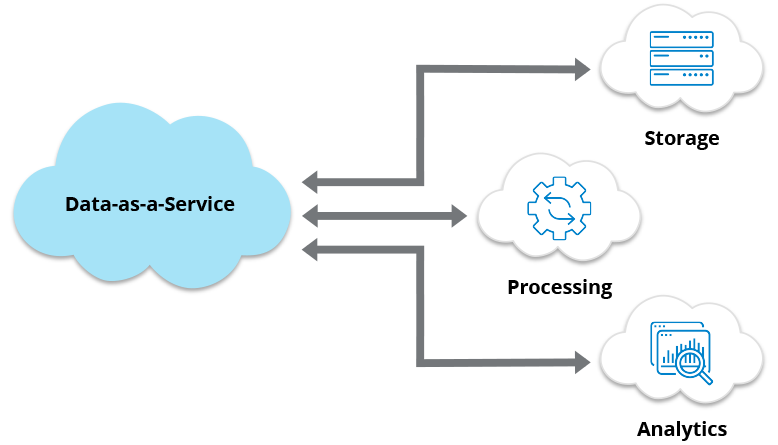How to Get the Most Out of Data as a Service
Data as a service (DaaS) is a cloud computing model that provides data as a service to customers. The DaaS model is growing in popularity as businesses strive to reduce the costs and complexities of data management and analytics. It can provide a more affordable and efficient solution for managing large data sets and allows companies to quickly and easily scale their data operations up or down. DaaS has several advantages over traditional data management models. DaaS is more flexible and scalable than on-premises data management, and it can be more cost-effective as well. Keep reading to learn how to get the most out of data as a service and its advantages.
Data as a Service (Daas)
Data as a service DaaS is a cloud computing model that provides on-demand access to data stores and data-processing capabilities. It enables companies to outsource the management and operation of their data infrastructure, freeing up time and resources to focus on their core business. DaaS providers manage and maintain the data-collection infrastructure, storage, security, and analytics so customers can focus on their applications and data.
DaaS can be done by either hosting the data yourself or working with a service provider. The benefits of DaaS include improved efficiency, security, and disaster recovery. DaaS has various purposes, such as big data analytics, application development, testing, or customer insights. DaaS providers offer different levels of scalability and flexibility, so it is essential to make sure that the provider can meet your needs both now and in the future.
When considering DaaS, there are three factors: where to host the data, the type of data, and who should manage the data.
When deciding where to host your data, you need to consider how much control you want over the infrastructure. If you’re going to have complete control, you’ll need to host it yourself. However, if you’re willing to let someone else handle hardware maintenance and upgrades, you can use a service provider. Not all data is suitable for outsourcing. However, if you have large files only occasionally accessed, storing them in the cloud may be a good option. Once you’ve decided what type of data should be outsourced and where it should be hosted, you need to find someone to manage it, like an external service provider.
How To Get the Most Out of DaaS
One way to maximize the benefits of data as a service is to integrate it with existing systems. You can do this in several ways, such as using the same authentication system or sharing standard data models. Doing so can make it easier for employees to use the data and get the most out of it. It can also help ensure that the data is used consistently across different applications and departments.
When you connect to a service, you can get real-time updates on your data. This means that you can see when new data has been added and make changes. Additionally, when you connect to a service, you can access various tools and resources that can help you get the most out of your data. These tools and resources include tutorials, support forums, case studies, etc.
Data as a service is becoming increasingly crucial for all businesses in any industry. Companies can reduce costs, improve efficiency, and make better decisions by taking advantage of the cloud.
Benefits of DaaS
DaaS can easily be scaled up or down to meet your organization’s needs, making it an excellent option for businesses that experience seasonal or variable traffic spikes. DaaS can help reduce the costs and maintenance requirements of desktop computing because the provider is responsible for managing and maintaining the infrastructure and software required to run the service. DaaS can help improve security by allowing organizations to manage and monitor user activity centrally. In addition, many DaaS providers offer enhanced security features, such as data encryption and user authentication. By outsourcing the management and storage of data, businesses can save money, improve efficiency, and reduce the risk of data loss. DaaS allows users to access their applications and data from any device, regardless of location, especially for workers who need to access their desktops from remote locations.




